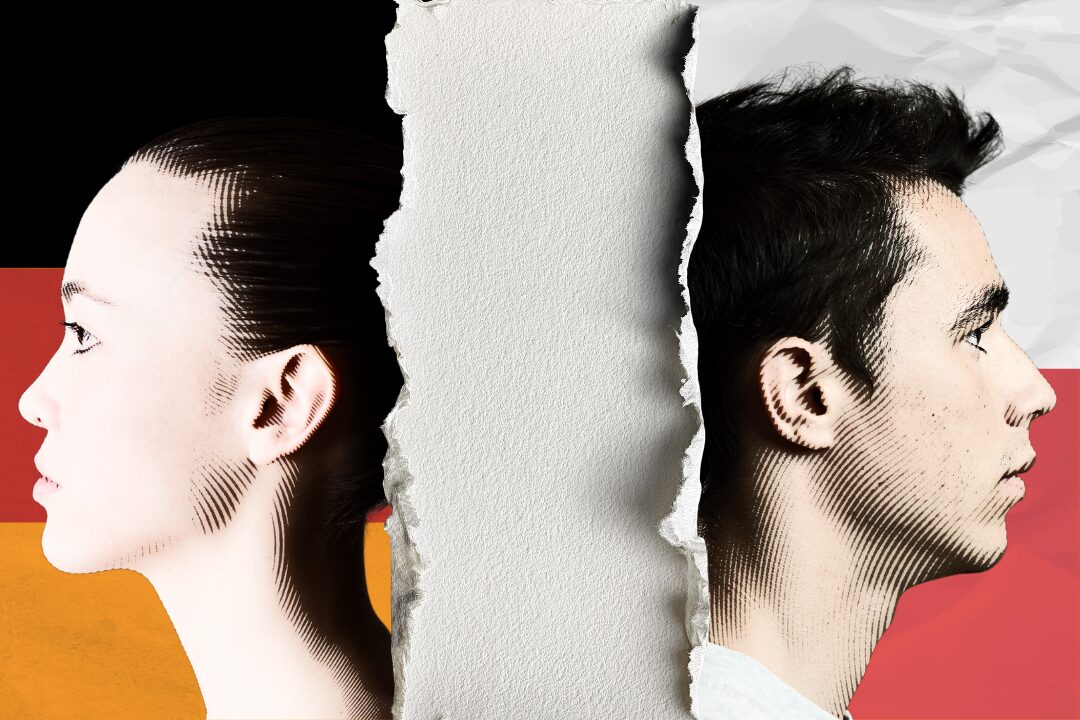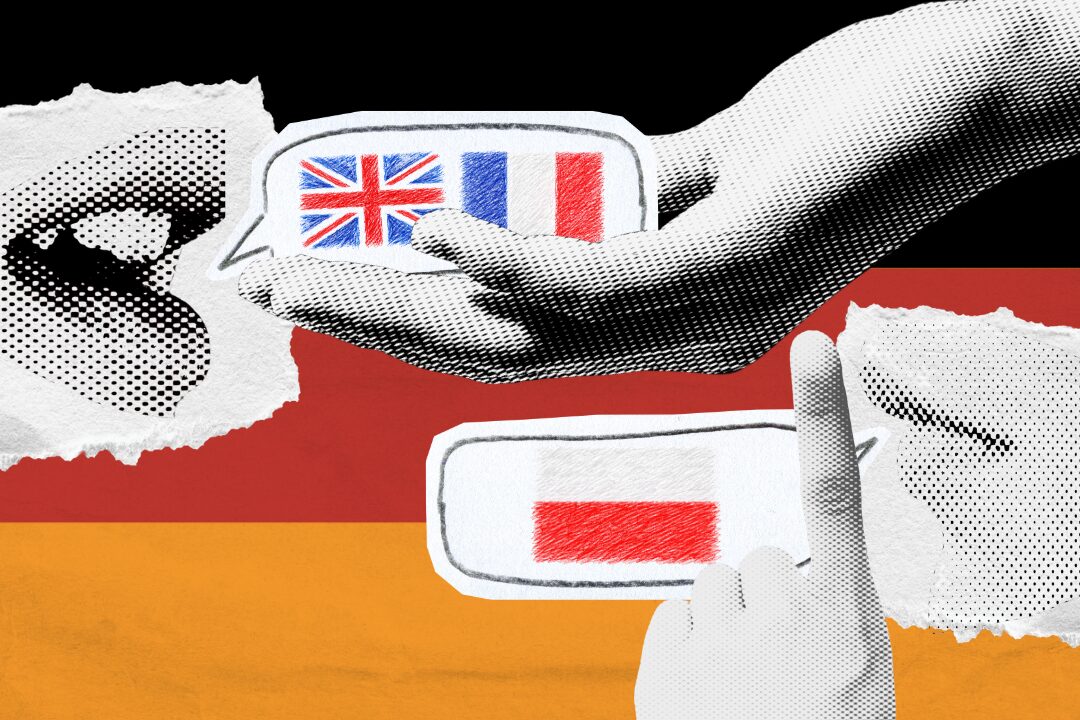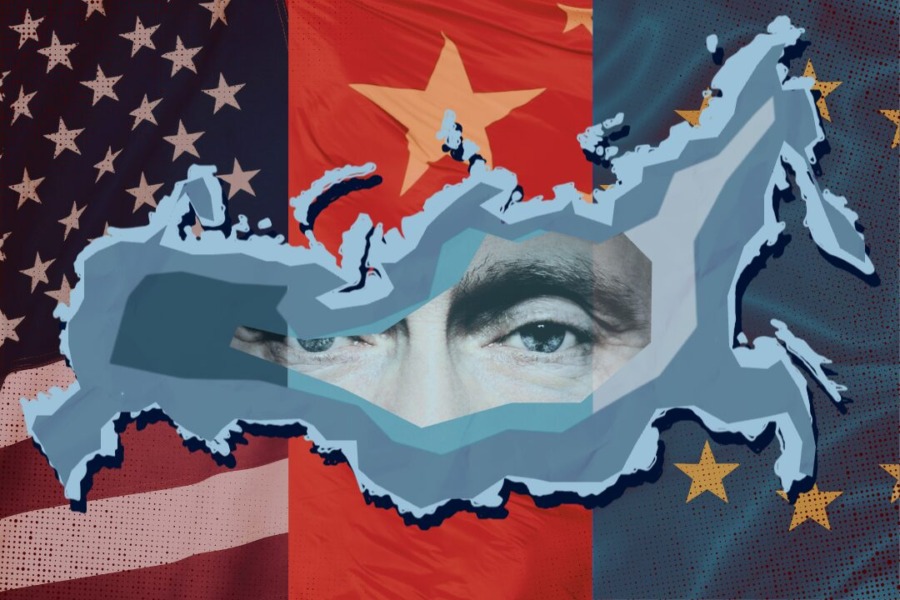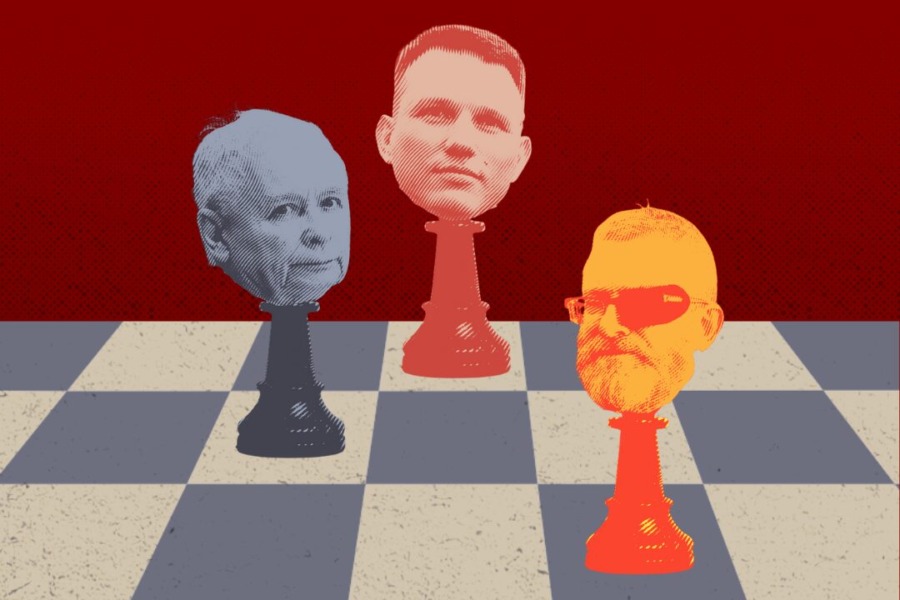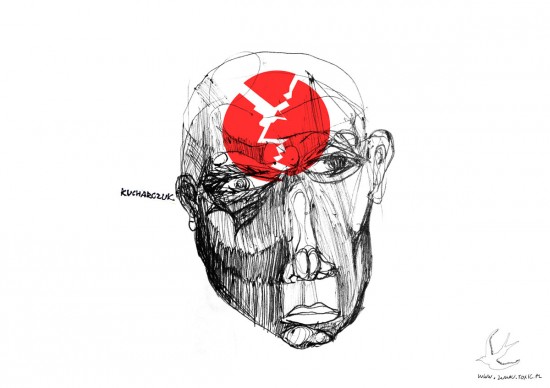
[ Version française / English Version / Wersja polska ]
Dear Readers,
Theoretically, now is the time for the left. The revival of political extremisms, the euro zone crisis, immigration and new inequalities – the list of challenges which European politicians are facing today has brought about a lot of talking about the necessity to have strong political parties addressing social justice and equality and… Nothing. Just disappointment.
The huge economic crisis which began in 2008 was already supposed – according to some commentators – to contribute to the victory of left political groups in Europe. However, for a longer time we did not hear of any major victories of the European wing of this ideology. The spirit of the left did not disappear, but still could not find his new incarnation. Until May 2012 came and with it the presidential elections in France, whereby the Socialist candidate, François Hollande won. Great hopes then revived for the resurgence of the left and by the same token, for a more social Europe, equal and just. It was cheered especially by those supporters of the left who did not relish the clearly liberal reforms of the social democratic government of Gerhard Schröder (such as more flexible forms of employment or tax cuts for the richest).
Unfortunately, Hollande’s success once again only confirmed the depths of the crisis in which European parties on the left side of the political scene find themselves. Torn between the old programme of social democracy and the demands of social movements, they, in fact, have no idea for the reconstruction of former communities and the fulfilment of individuals’ aspirations. They are looking for new roads – they are fighting for human rights and a better environment – but they still have their hands tied with old problems.
Trying to win new social groups – the LGBT communities and women – at the same time the left often loses the support of its “iron electorate”. For example, in France the votes of the workers and of the service sector employees are increasingly flowing to the far-right National Front. Some mischievous observers even claim that the left – especially the French left – is slowly becoming a party of functionaries and officials, seeking only to maintain the status quo, a party conservative in its spirit.
The crisis of political practice, however, does not translate into a lack of reflection on the state of the left-wing politics. In France and in other European countries, valuable books and studies are published every year whose main aim is to try and revive the left, to breathe new energy into it and to develop its effective programme. One such publication is the recently published and widely discussed work „The French Left 1762 – 2012” („Les gauches françaises 1762-2012”, Flammarion, 2012) by Jacques Julliard. Interestingly, in this history of the French left wing, its author, a well-known journalist, in addition to a thorough analysis of historical material, outlines a programme for the restoration of the left.
In Juilliard’s opinion, the French left, but also more broadly, the European left – because he changes he describes are transnational in nature – is now facing real challenges. Indeed, there has been a significant change both in political theory and practice. The left cannot continue to believe in the idea of progress, or to think in terms of social classes. It has to become a party of individuals, not collective bodies, a party which emphasizes the importance of environmental issues and human rights, and only secondarily of redistribution and economic problems. It should promote a policy of participation, thus fighting against the problem of the declining participation of citizens in public life, and strive for a fundamental change in the functioning of international politics in order to put an end to the concert of powers in favour of policies which will underpin the importance of the United Nations.
Will these proposals be actually able to revive the left? Will they permanently reinforce its image as elitist and detached from reality? In today’s issue of „Kultura Liberalna” we are trying to take a look at the following three issues inspired by Juilliard’s proposals: Is there actually no longer a place for progressivism in politics? Can politics be changed today by large social groups, teachers or employees paid from the state budget organizing strikes, or by ad hoc associations as it was during the protests against ACTA or the Occupy movement? And finally, will the left be more and more avant-garde and focus only on social morality changes and ecology, or will it address its traditional, more conservative electorate in the name of economic equality and social justice?
We have invited four leading figures of the left – Polish, French and American – to this issue: Zygmunt Bauman, a world-renowned sociologist, who paints a pessimistic picture of the future of the left and Krzysztof Pomian, a legend of Polish October, who looks at the French left even more critically; Marcel Gauchet, an eminent French philosopher and historian, the editor-in-chief of „Le Débat”, who believes in the revival of the socialist left, and Michael Kazin, the editor-in-chief of the famous American left-wing quarterly “Dissent”, who looks to the future with hope for left-wing movements, at the same realistically viewing the obstacles which the left must overcome.
Adam Puchejda, Jarosław Kuisz
***
The presented Topic of the Week opens the Polish-French cycle of issues of „Kultura Liberalna” prepared in cooperation with the French Culture Centre in Warsaw and the Warsaw Office of European Council on Foreign Relations.
1. ZYGMUNT BAUMAN: Future for the left?
2. MARCEL GAUCHET: Revival of the left!
3. MICHAEL KAZIN: Leftist ideals are still alive
4. KRZYSZTOF POMIAN: The left is distorted
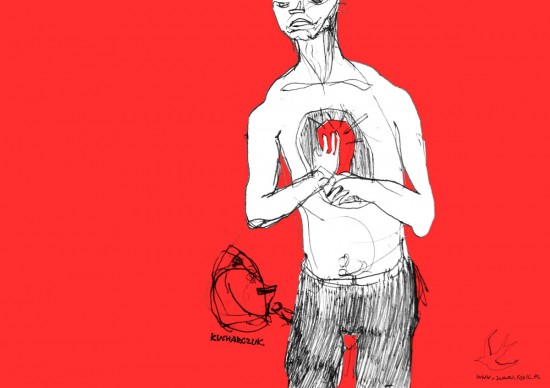
Future for the left?
Zygmunt Bauman talks to Adam Puchejda
What will, in your opinion, the future left look like? Conservative in terms of social manners, placing emphasis on redistribution of wealth, disinclined to Europe, or maybe avant-garde, ecologically radical, fighting for the human rights?
None of these. The characteristics mentioned by you do not encompass all the complexity of the concept of the contemporary left. For a long time we have had two approaches to building the left, each of which is unfortunately wrong. Still the influential idea is the idea to create the left by making it similar to the right, of course, adding the promise that we will do the same what the right is doing, but simply better and more efficiently. Let’s have regard to the fact that the most drastic moves to disassemble the social state were taken under social democratic ruling. Although the prophet and the missionary of the neoliberal religion was Margaret Thatcher, it was Tony Blair, a member of the Labour Party, who made that religion a state religion.
The second method of constructing the left was based upon the concept of so-called “rainbow coalition”. This concept assumes that if all the dissatisfied can get together under one umbrella, no matter what troubles them, a strong political power will emerge. But, among the disappointed and the frustrated there are violent conflicts of interest and postulates. To imagine the left as, for example, consisting on one hand of the discriminated promoters of single-sex marriages and on the other hand, of the persecuted Pakistani minority, is a solution for disintegration and powerlessness and not for integration and power for effective acting. The concept of ‘rainbow coalition” must result in dilution of the left identity, dilution of its programme and the disabling of the postulated “political power” as early as at the moment of its birth.
What can the left base its programme on? Jacques Julliard who in his latest book Les gauches françaises 1762-2012,) critically analysed the heritage of the French left, claims that the left can refer only to the idea of fairness. It cannot even talk about progress since it gives a worried look at technology which the progress is identified with, but exhibits friendly attitude towards ecology, which ex difinitione aims at conserving and not at changing.
Certainly, the collapse of communism had a considerable impact on the left potential. For decades “the day order” for the rest of the world was prescribed by the simple fact of the existence of communism propagating the social alternative programme. That rest regardless whether being enthusiastic or not, led by self-preservation instinct, embarked on initiatives described in that programme, such as combating misery, humiliation and human disability, appropriate compensation for the role of working class in the process of accumulating wealth, fighting off inequalities and fighting for social justice, education and health care accessible by all, secure old age, or the security against life misfortune experienced by an individual. Hence, for the social democracy paradoxically having a powerful ally as its fierce enemy, was easier to force a social programme. It shall also be admitted that “the rest of the world” fulfilled the tasks enforced by the communist threat much more successfully than the communism itself! Today there is no communist “scare crow”, so the programmes for improving the quality of human life are in retreat…
Gerhard Schroeder put it straight to the point though laconically, saying: “There isn’t anything like capitalist economy, or socialist economy. There exists either good, or bad economy”. In this sense the rulings of the central right and the central left compete for dignity of the most faithful congregation in GDP Church. Both sides of the political fan when being at the helm are compatible on the status of economic growth as a remedy for all social ailings as well as on the growth of the consumption as a determinant of good ruling. The rest is an election propaganda. In other words, the left practically speaking, does not have a programme in addition to bidding against the right to determine who will speed up the process of withdrawing from life improvement programmes and who will win the coming elections. It is not mentioned at all about the creation of an alternative to the social instruments which are sick and unfriendly to people.
So, we lay the left in the grave?
* Zygmunt Bauman, sociologist, philosopher, postmodernism theorist, retired professor of the University of Leeds and University of Warsaw. He is an author of over 40 books. He was awarded the European Amalfi Prize for his work “Modernism and holocaust” (1989) in the field of social sciences. In the year 1998 he was awarded the Theodor W. Adorno prize and two years later received the Prince of Asturias Award, called the “Spanish Noble Prize”.
** Adam Puchejda – historian of ideas. His interests range from the sociology of intellectuals to public sphere studies and political philosophy; most recently, he worked at Sciences Po in Paris with Daniel Dayan. Regular contributor at „Kultura Liberalna”.
*** Original text in Polish. Translated by EUROTRAD Wojciech Gilewski.
***
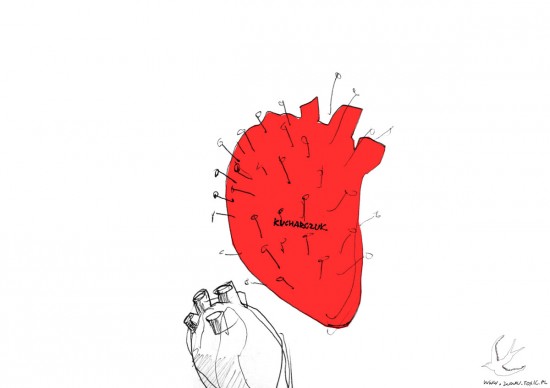
Revival of the left!
Marcel Gauchet talks to Adam Puchejda
What do you think the left of the future will be like? Avant-garde, green, geared more for human rights than redistribution – as suggested by Jacques Julliard – or, more socially conservative, much more focused on the economy and anti-European?
Inevitably, there will be a little of each of all the elements described by Julliard. Today, no party can do without ecology. Of course, the left will continue – though to a lesser extent – to have redistribution inclinations. It will, of course, be still be inspirited with some concern for equality and social justice. All this cannot be achieved in some miraculous way. There will be no new left which would be entirely different from the old-time left. I think that the left will mainly emphasize a change of orientation as far as the reduction of economic growth is concerned, the growth fetish. From the perspective of a certain level of wealth and consumption of our societies, it becomes absurd, since it is well visible that wealth is not an end in itself. If the left does what it should do, I think it has a lot of virtues which simply are reflected in the idea of society.
What do you mean by “the idea of society”?!
It is simply a society worthy of the word! Because we are now moving in the direction of society – regardless of whether the government is left-wing or not – deeply deformed as such. The atomization of social relations and subjecting them to the rules of competition make these relations extremely unpleasant, even repulsive. The tendency here is that of a struggle of all against all, and this is not the normal form to be rightly expected from human coexistence. This is a real issue for the left. They have dealt so much with the root causes that, en route, they have forgotten the way real people live. In practice, this means less technocracy and more attention paid to people’s actual living conditions. One could imagine a green society which would be terrible from a human point of view. We have experienced it: the collectivization of the means of production does not say anything about what further happens to education, family, children, the cycle of life, the youth, the city, the administration of justice, the prison system, health care, old people. And these are the issues which make up society and which the left will have to rethink.
What can this new programme be based on? What ideas?
* Marcel Gauchet, historian and philosopher, director of research at EHESS (School for Advanced Studies in the Social Sciences) and the editor-in-chief of the review “Le Débat”. Among his many works, the following should be mentioned: Le Désenchantement du monde. Une histoire politique de la religion (1985)/ The Disenchantment of the World: A Political History of Religion; L’Avènement de la démocratie/ The Advent of Democracy, vol. 1–3 (2007, 2010).
** Adam Puchejda – historian of ideas. His interests range from the sociology of intellectuals to public sphere studies and political philosophy; most recently, he worked at Sciences Po in Paris with Daniel Dayan. Regular contributor at „Kultura Liberalna”.
*** Original text in French. Translated by EUROTRAD Wojciech Gilewski.
***
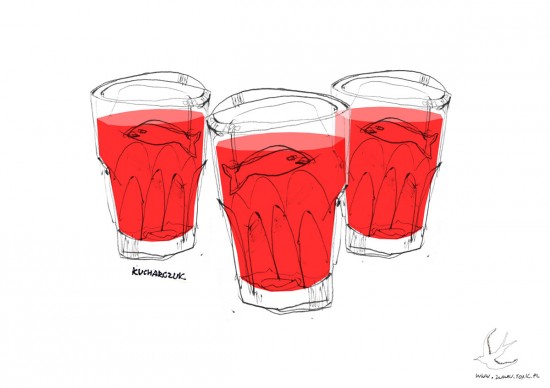
Leftist ideals are still alive
A left that is not rooted in social movements – old, new, yet to be born – would not be anything more than “une gauche caviar”.
We are seeing the ongoing fragmentation of what it means to be on the left. In the United States, many of those who care deeply about ecology, human rights or redistribution would not even see themselves as leftists, preferring some other term. This is in part because the mass media often describes as “left” the mainstream of the Democratic Party, which, for radicals of various stripes, is seen as an intrinsic part of the “establishment.”
Certainly, as long as most self-identified leftists come from professions and are economically comfortable while the labor movement and allied movements are in decline, redistribution will not be the major issue for the left. And, of course, the politics of growth increasingly comes into conflict with the need to stop climate change.
But when I think about main ideas for the left today, I do think – as Jacques Julliard – that “justice” in its many definitions (racial, gender, sexual, environmental, even class!) is the most common trope of the left in the U.S. and perhaps in Europe. And when I think of “progress”, I would not say that the left is more anti-progress than the right, unless one equates “progress” with the proliferation of large manufacturing facilities powered by fossil fuels. We can say that the left is afraid of science, but that may be true only of a small number of anarchists or the kind of environmentalists who hammer spikes into trees to stop, temporarily, them from being cut down. Still, at least in the U.S. and Canada, there is a large cohort of young leftists who put their scientific knowledge to use in such fields as environmental engineering, alternative energy development, and data analysis.
On the other hand, I often hear in Europe that we need to choose between more “progressive”, morally liberal, and culturally advanced left, and the left of the old working class which supports, e.g. death penalty and is against gay marriage. That we should either go hand in hand with the left that is much more focused on cultural and moral issues rather than economy and redistribution. I strongly oppose that. Choosing one or the other of these foci would be a historic and perhaps a fatal error for the left! When the left has been able to make a legitimate claim to being the only force that wants to advance both freedom and democracy, it has embraced both cultural modernism/pluralism and economic egalitarianism. And young working-class people – at least in North America and much of Europe – are often more open to cultural issues than to redistribution. This is one of the results of over three decades of neoliberal or libertarian hegemony. Activists in the now mostly defunct Occupy movement (or ‘uprising’ since it never really jelled into a social movement) strongly denied there was any contradiction between the two foci. But they were stronger on utopian hopes and rhetoric than on political strategy. The problem is that the historic institutions of the redistributionist left (labor unions, left parties, informal and often locally based working-class societies of various kinds) are weaker and on the defensive nearly everywhere. If they cannot be reimagined and reinvented, then intellectuals who want to concentrate on economic equality will be speaking mainly to themselves.
At the same time I do not think that we need to choose between imagining society as a group of classes with certain interests (teachers, workers, etc.), or as a society of individuals with different cultural, social and religious needs. In my view the basis for a good society remains as follows: “the free development of each is the condition for the free development of all.” Nonetheless, the kind of class consciousness envisioned and advocated by Marxists clearly no longer describes reality, nor does it inspire large numbers of working-class people, left-wing intellectuals and activists (some of whom are workers, of course). But we all do live nowadays, as Marx once predicted, in an almost fully capitalist political economy – and it would take an extremely naïve analyst to say that classes or, at least, fractions of classes don’t exist and struggle to defend their interests – both nationally and internationally. A left that is not rooted in social movements – old, new, yet to be born – would not be anything more than “une gauche caviar”.
* Michael Kazin is editor of “Dissent” and author (most recently) of “American Dreamers: How the Left Changed a Nation” (paperback, 2012). He teaches history at Georgetown University in Washington, DC.
***
The left is distorted
After five years of Hollande’s presidency, France is to be confronted with the situation that Front National will become one of the main actors on the French political scene and its chairwoman, Marine Le Pen, will qualify for the second round of presidential elections, scoring better than her father.
What is the French left like? What will it be like? Before I give an answer, I will refer to the fact that it was radically transformed in the 70s of the 20th century: up to that time the communist party had been its main power, since then that power was in the hands of socialists and they will be the main topic here.
Jacques Julliard who wrote the history of the French left starting from XVIII to this day, concludes that along with the collapse of the communism and sexual liberation, the left ceased to be of working class and collective, and became individualistic – at contemporary times it more focuses on human rights than class struggle. Julliard’s statement at its best embraces only one dimension of change so profound that it puts under question the left attitude of the French socialists itself.
It is for the first time in the history that the party, which calls itself social, is a party of the socially and culturally privileged: personnel of the public administration with job security, citizens of big and small cities, groups having education and income higher than average, of which the members endowed with mental capacity and professional qualifications are prepared to compete on the market, if not world market, then on the market which is to a large extent open to the whole world. Physical workers and those employed in private enterprises, dwellers of city suburbs housing estates, low income persons are of interest to socialists only as a topic for rhetorical discourse show. The life issues which matter for those groups, such as security and immigration considered to be politically incorrect, are left to the right and the extreme right. This world is going backwards.
The French socialists share different views on those issues as it also is the case for other issues. But the dominant tendency is such. It is characterised by: state control preserved from socialism and prevailing distrust towards any private initiative, laicism understood as anti-christianity, internationalism reflected in friendly attitude towards “anti-imperialistic movements” and strive for creating a “new man” through forcing social changes even if it is against the opinion shared by majority. It can entail dramatic consequences – not only for France. After four years of ruling by Jospin, Jean-Marie Le Pen was a candidate in the second round of presidential elections. After five years of Hollande’s presidency, France is to be confronted with the situation that Front National will become one of the main actors on the French political scene and its chairwoman, Marine Le Pen, will be qualified for the second round of presidential elections, but scoring better than her father.
As I have already said, the French left is divided. In particular, the productive orientation of the socialist party stays in conflict with the “ecological” orientation. When uttering this word speaking about France, this word should always be put in inverted commas since the party which names itself like this and which is in alliance with the socialist party is more involved in fighting capitalism than fighting for environmental protection. This is of interest to it as long as it serves the superior goal. It is attempting to crash capitalism and in the same time not start any revolution nor expropriate capitalists, through stopping the industry expansion, and first of all, curbing the energy production.
Hence, it is not a conservative party as some may think. It is simply a reactive party with a programme which, if implemented, would lead to further escalation of unemployment and widespread poverty. The socialists need alliance with it to win elections in the cities where ecological party is favoured by majority of electors. In the same time, it puts both parties in a difficult situation, which is already noticeable in nuclear power industry and shale gas.
* Krzysztof Pomian, philosopher, historian, essayist, retired professor of the French National Centre of Scientific Research and professor at Nicolas Copernicus University in Toruń; advisor for “Le Débat” review.
** Original text in Polish. Translated by EUROTRAD Wojciech Gilewski.
***
* The author of the concept for the Topic of the Week: Adam Puchejda.
** Collaborators: Jarosław Kuisz, Piotr Kieżun.
*** Project coordination on the part of „Kultura Liberalna”: Adam Puchejda, Łukasz Pawłowski, Karolina Wigura.
**** Coordination on the part of the French Culture Centre in Warsaw: Aneta Bassa.
***** Translation from French and English: EUROTRAD Wojciech Gilewski.
****** Illustrator:: Rafał Kucharczuk
“Kultura Liberalna” no. 241 (34/2013) of August 20, 2013




